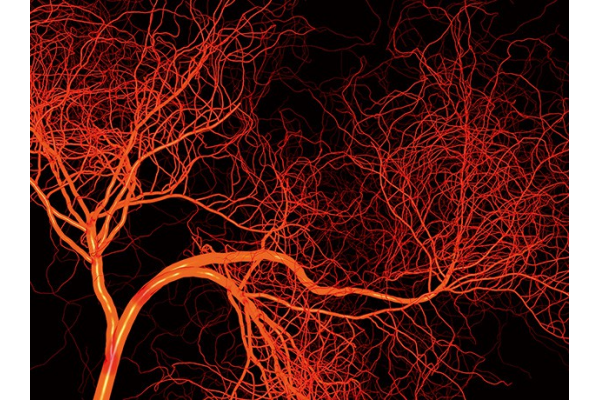Study finds 3D-printed blood vessels could improve heart bypass outcomes
August 1, 2024
Source: https://pharmatimes.com/news/study-finds-3d-printed-blood-vessels-could-improve-heart-bypass-outcomes/
 383
383

Coronary heart disease is the most common form of heart and circulatory disease
Researchers from the University of Edinburgh, in collaboration with Heriot-Watt University, have revealed that artificial blood vessels printed using novel 3D printing technology could transform the treatment of cardiovascular diseases (CVD).
The findings published in Advanced Materials Technologies demonstrate that artificial blood vessels could improve outcomes for heart bypass patients.
CVD affects around seven million people in the UK and is a significant cause of disability and death.
Heart bypass surgery is a procedure used to treat coronary heart disease, the most common form of heart and circulatory disease that affects around 2.3 million people in the UK. It occurs when coronary arteries become narrowed by a build-up of fatty material within their walls.
Researchers led by the University of Edinburgh’s School of Engineering used a rotating spindle integrated into a 3D printer to print tubular grafts made from a water-based gel and later reinforced the printed graft in a process called electrospinning, which used high voltage to draw out thin nanofibres, to coat the artificial blood vessel in biodegradable polyester molecules.
The grafts can be created in thicknesses ranging from one to 40mm in diameter for a range of applications and are easily integrated into the human body, with tests showing that the resulting products are as strong as natural blood vessels.
By using synthetic vessels, patients would experience less scarring, pain and infection risk associated with the removal of human veins in bypass operations and could help alleviate the failure of small synthetic grafts, which are challenging to integrate into the body.
Dr Norbert Radacsi, principal investigator, School of Engineering, University of Edinburgh, commented: “The results from our research address a long-standing challenge in the field of vascular tissue engineering – to produce a conduit that has similar biomechanical properties to that of human veins [to… improve treatment options for patients with CVD.”
In collaboration with the University of Edinburgh’s Roslin Institute, researchers now aim to test the artificial blood vessels in animals, to be later followed by trials in humans.
By editorRead more on
- The first subject has been dosed in the Phase I clinical trial of Yuandong Bio’s EP-0210 monoclonal antibody injection. February 10, 2026
- Clinical trial of recombinant herpes zoster ZFA01 adjuvant vaccine (CHO cells) approved February 10, 2026
- Heyu Pharmaceuticals’ FGFR4 inhibitor ipagoglottinib has received Fast Track designation from the FDA for the treatment of advanced HCC patients with FGF19 overexpression who have been treated with ICIs and mTKIs. February 10, 2026
- Sanofi’s “Rilzabrutinib” has been recognized as a Breakthrough Therapy in the United States and an Orphan Drug in Japan, and has applied for marketing approval in China. February 10, 2026
- Domestically developed blockbuster ADC approved for new indication February 10, 2026
your submission has already been received.
OK
Subscribe
Please enter a valid Email address!
Submit
The most relevant industry news & insight will be sent to you every two weeks.



